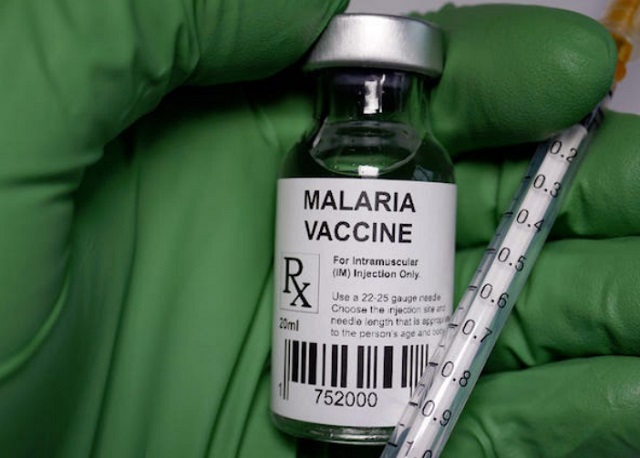
Leaders who attended Kigali CHOGM 2022 must commit budgets to back pledges of doing more to ease Africa’s malaria burden
COMMENT | Tijani Salami & Roseline Orwa | After a recent work trip to Kisumu City on Lake Victoria in western Kenya, I suffered a bout of malaria that left me sick for two weeks. Getting tested and treated was not hard; the challenge was the long incubation and recovery period that reduced my productive work time to zero and made a dent in my income.
Still, I was fortunate. Malaria killed over 600,000 Africans in 2020, according to the World Health Organization (WHO).
Mosquitoes are plentiful in Kisumu, where the humid climate makes the area a prime breeding ground for the female anopheles mosquito – the ‘vector’- that spreads the disease. In this area of Kenya, malaria is one of the leading causes of morbidity (illness) and mortality (death). Data from the local Nyanza Provincial Hospital show that around 40 percent of those who seek help each day have malaria. An average of 10 children are lost to severe malaria each year here, according to medical staff.
In side events at the meeting of the Commonwealth Heads of Government June 20-25 in Kigali, malaria and other Neglected Tropical Diseases (NTDs) are being discussed.
I’m far from alone in facing financial strain because of malaria. Even though it is a preventable and curable disease, those affected lose much-needed income. Duration of the illness commonly varies from seven to 14 days or more days. The resulting loss of earnings, added to the costs of testing and treatment, can be especially challenging for households which are already impoverished.
The financial burden malaria imposes on families and society is an important reason, in addition to preventable deaths, why governments must push to distribute vaccines. And so we call on Commonwealth leaders to combat the impoverishment of millions of Africans.
The Kenyan government has stepped up efforts to reduce malaria infection by training doctors, increasing the distribution of insecticide-treated bed nets and providing Artemisinin-based combination therapies (ACT), which have proven to be 90 percent effective against malaria. The county government of Kisumu is also working on proper urban planning as a long-term strategy towards reducing habitats for the breeding of vector parasites.
These efforts are commendable. But Kenya and other African countries must do more. Around 60 percent of the patients I see as a primary health-care physician in Nigeria have some form of malaria, either on its own or in combination with other diseases. A malaria household survey in Nigeria has indicated that an average household spends about $12.70 on outpatient treatment and $23.50 when admitted for treatment.
Highly exposed individuals need to be treated every month, because re-infection can occur shortly after treatment, and symptoms take about two weeks to develop. In Nigeria, it costs about 1,000 Naira ($2.50) to treat each case of uncomplicated malaria. These out-of-pocket expenses are a high economic cost for families living on less than $1 a day.
Although the Nigerian government has subsidised drugs and invests in prevention, the heaviest burden falls among socio-economically disadvantaged citizens.
The vision of the Nigeria National Malaria Strategic Plan of 2014 to 2020 was to achieve a malaria-free country. By 2021, the Nigerian government had distributed 193 million mosquito nets. That is not enough. Experience has shown that malaria elimination is very difficult in the Africa nations in which the disease is endemic, and so it is vaccines which offer the best prospect of ending this scourge.
WHO recommends widespread use of the RTS, S/AS01 (RTS, S) malaria vaccine among children in sub-Saharan Africa and in other regions with moderate to high malaria transmission. Evidence shows that the vaccine can reduce episodes of malaria as well as life-threatening severe malaria. Moreover, it has a good safety profile and is cost-effective in areas of moderate to high malaria transmission.
Malaria is not just an ailment – it pushes people into poverty. And so we call on Commonwealth leaders to invest in distributing the current malaria vaccine and developing better ones.
Pledges made by Commonwealth leaders must be backed up with budgets, action and concrete plans. We call upon African governments, in particular, to take a lead and invest in the malaria vaccine campaign as a measure to reduce poverty and improve their people’s lives and incomes.
******
Dr. Tijani Salami is a physician, sexual and reproductive health expert and founder of Sisters Caregivers Project Initiative which provides medical and social support for women, and advocates for an end to child marriage and maternal malnutrition. This column was co-authored with Roseline Orwa, founder and director of the Rona Foundation, a grassroots organisation in Kenya that works to advance and protect widows’ rights, as well as provide support to orphans and vulnerable children.
 The Independent Uganda: You get the Truth we Pay the Price
The Independent Uganda: You get the Truth we Pay the Price





